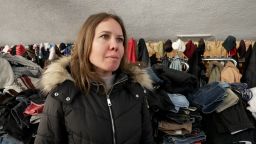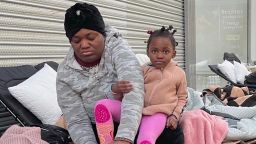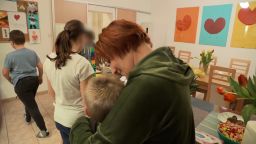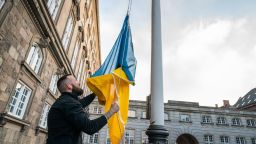In thespan of just two weeks, millions of Ukrainian refugees have been forced to flee as the brutal Russian invasion of their homeland continues.
The amount of people on the move constitutes “the fastest growing refugee crisis in Europe since World War II,” UN Refugee Agency (UNHCR) CommissionerFilippo Grandi said Sunday, and is reminiscent of the 2015 migrant crisis spurred by the war in Syria which resulted in an estimated 1 million asylum-seekers.
While many residents in the central and eastern portions of the country have relocated to western Ukraine and away from the front lines, more than 2.5 million Ukrainians have left entirely following Russia’s invasion on February 24, according to the latest United Nations refugee estimates.
Grandi told French radio station France Inter the sheer number of people fleeing for safety is a “terrifying” figure. And while many refugees going to other countries have familial ties or connections, he said, “what worries me, what we fear is a second wave of persons who have a good deal less resources and connections and who will be much more vulnerable.”
Other nations across Europe have reported a steady increase in refugees as fighting continues into its third week, but the numbers differ greatly by country.
Most of those fleeing Ukraine are women and children. Ukrainian males aged 18 to 60 were banned from leaving after its national government enforced martial law.
Here’s a look at where many Ukrainians have headed to avoid the Russian incursion.
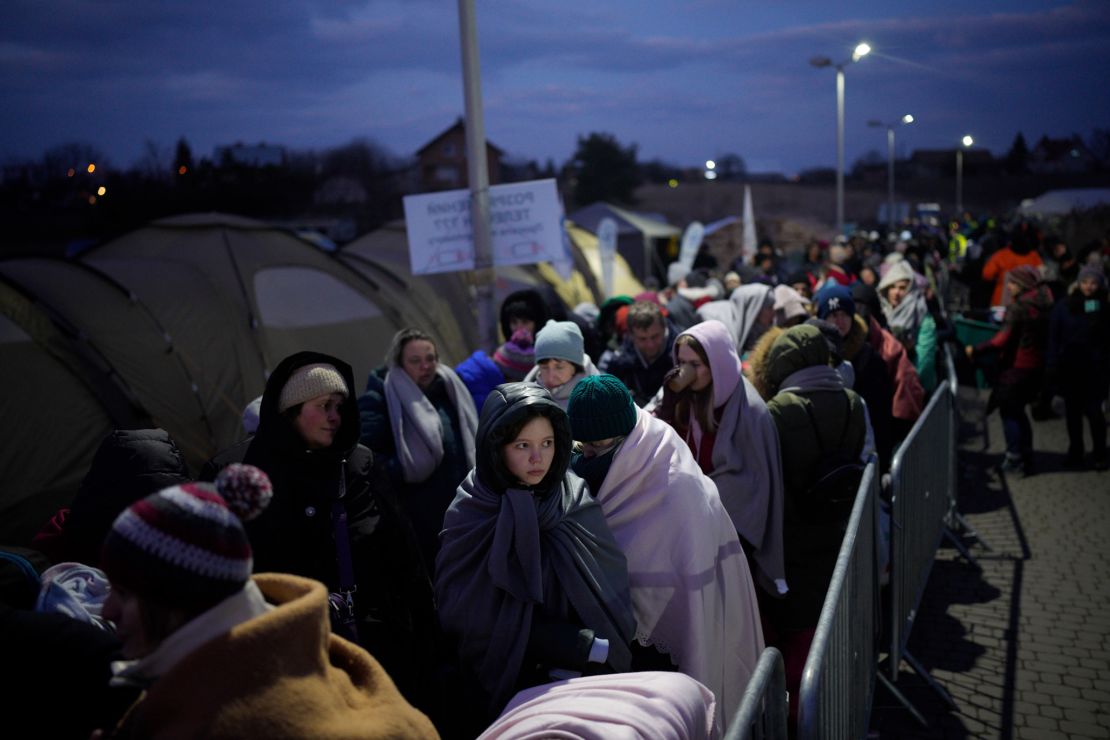
Ukraine’s neighbors
With more than 1.6 million Ukrainians crossing into its territory as of Friday, according to UNHCR data, Poland has received by far the most refugees.
Sharing a border with Ukraine’s northwest, Poland has become a first stop for those who may be seeking refuge in nations elsewhere.
Nations directly to the west and south of Ukraine have also accepted large numbers of refugees. Since the invasion, more than 245,000 Ukrainians have entered Hungary, while over 195,000 have fled to Slovakia, according to UNHCR data Friday.
Moldova received about 278,000 Ukrainians after the war broke out, according to UNHCR, and more than 173,000 of them have since moved to neighboring Romania.
The sheer amounts of people fleeing have driven locals in neighboring nations to provide relief where possible. To help alleviate some of the stress and emotions attached to leaving Ukraine, some Polish communities are helping strangers get settled with basic necessities, including strollers and diapers for young children.
Constanta Dohotaru, a Moldovan activist heavily involved in civilian efforts to provide aid, told CNN of fears those caught up in the mass departure of Ukraine could become targets for human traffickers.
“At the border, some women are really afraid to get into cars which is why our volunteers are now wearing vests” to help identify themselves, she said, and efforts are underway toward official identification for drivers to show they’ve been vetted by the government and are offering safe transportation services.
Seeking asylum throughout Europe
In Germany, nearly 123,000 refugees had arrived as of Saturday, according to its interior ministry. However, due to the absence of border checks between Poland and Germany where most Ukrainian refugees are coming from, the actual number of incoming refugees could be significantly higher, an interior spokesperson told CNN.
Berlin has become a major hub for refugees from Ukraine, Mayor Franziska Giffey said Wednesday night. Over the previous three days, more than 13,000 refugees had arrived in Berlin by train or bus, said Giffey,adding others had likely arrived by car.
Refugees fleeing Ukraine have also arrived in France, French Citizenship Minister Marlene Schiappa said Thursday.
Of the 7,251 people, “mostly women and children,” to have entered the country since the invasion, 6,967 are Ukrainian nationals, France’s Interior Ministry told CNN.
“We can see that things are increasing as the conflict progresses and today we have 25,000 places of refuge for these people,” Interior Minister Gerald Darmanin said Thursday, adding France had seen 3,000 arrivals in the previous two days.
In the United Kingdom, British Home Secretary Priti Patel told lawmakers in the House of Commons Thursday from next week, Ukrainians with passports would no longer need to go to a visa processing center before traveling to the UK.As of Wednesday, 760 visas had been granted by the UK.
The UK system drew criticism after some refugees reached the French port city of Calais only to be told to travel to appointments in Paris or Brussels as part of the administrative procedures.
Across Europe, nations including Austria, Croatia, Estonia, Greece, Ireland, Italy, Lithuania, the Netherlands, Portugal and Sweden have each reported thousands of Ukrainians arriving.
US, Canada pledge to assist
Across the Atlantic, Canada and the United States have both offered their support, with Canada announcing last week it would fast-track Ukrainian applications for both temporary and permanent residency status as well as family reunification applications.
“Canada is ready to welcome Ukrainians fleeing Vladimir Putin’s war, and there is no limit to the number of applications that we are going to be willing to accept,” said Sean Fraser, Canada’s immigration minister.
Canada is home to the world’s largest Ukrainian diaspora after Russia, with more than a million Canadians who claim Ukrainian heritage.
US Vice President Kamala Harris has pledged support to addressing the massive flow of migrants coming from Ukraine and said the US was willing to take in more migrants.
“The US is absolutely prepared to do what we can and what we must,” Harris said during a visit to the Polish capital of Warsaw Thursday.
But border policies leaving thousands of migrants and refugees from other nations in limbo also kept out a Ukrainian family fleeing the war. A Ukrainian woman and her three children crossed into the US Thursday after being turned away at the US-Mexico border a day earlier, according to the family’s attorney.
For nearly two years, the US southern border has largely been closed off to asylum-seekers because of a public health order invoked under the Trump administration at the onset of the coronavirus pandemic.
CNN’s Alisha Ebrahimji, AnneClaire Stapleton, Anna-Maja Rappard, Paula Newton, Priscilla Alvarez, Lindsay Issac, Nadine Schmidt, Tara John, Joseph Ataman, Camille Knight, Niamh Kennedy, Benjamin Brown and Liz Belanger contributed to this report.


